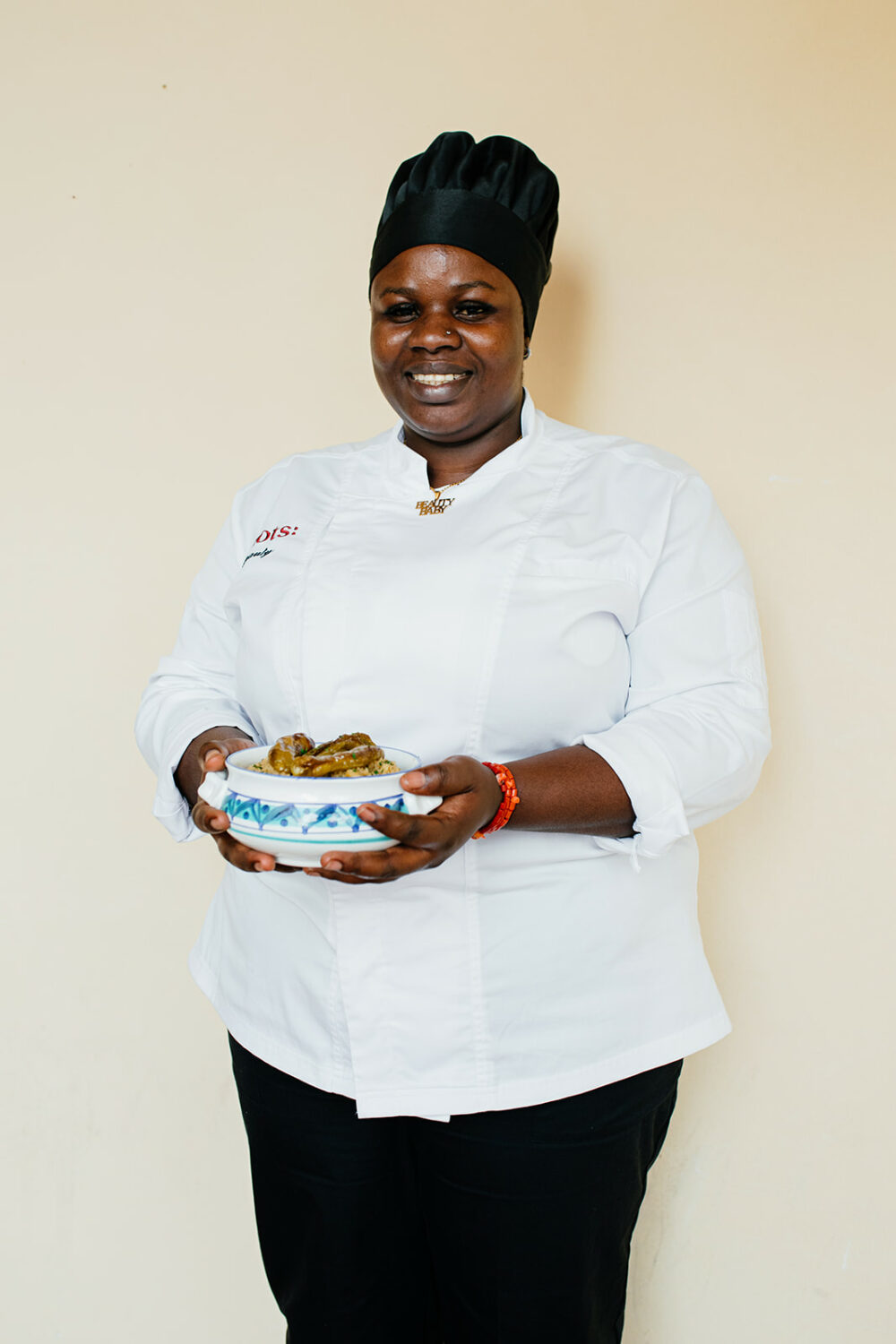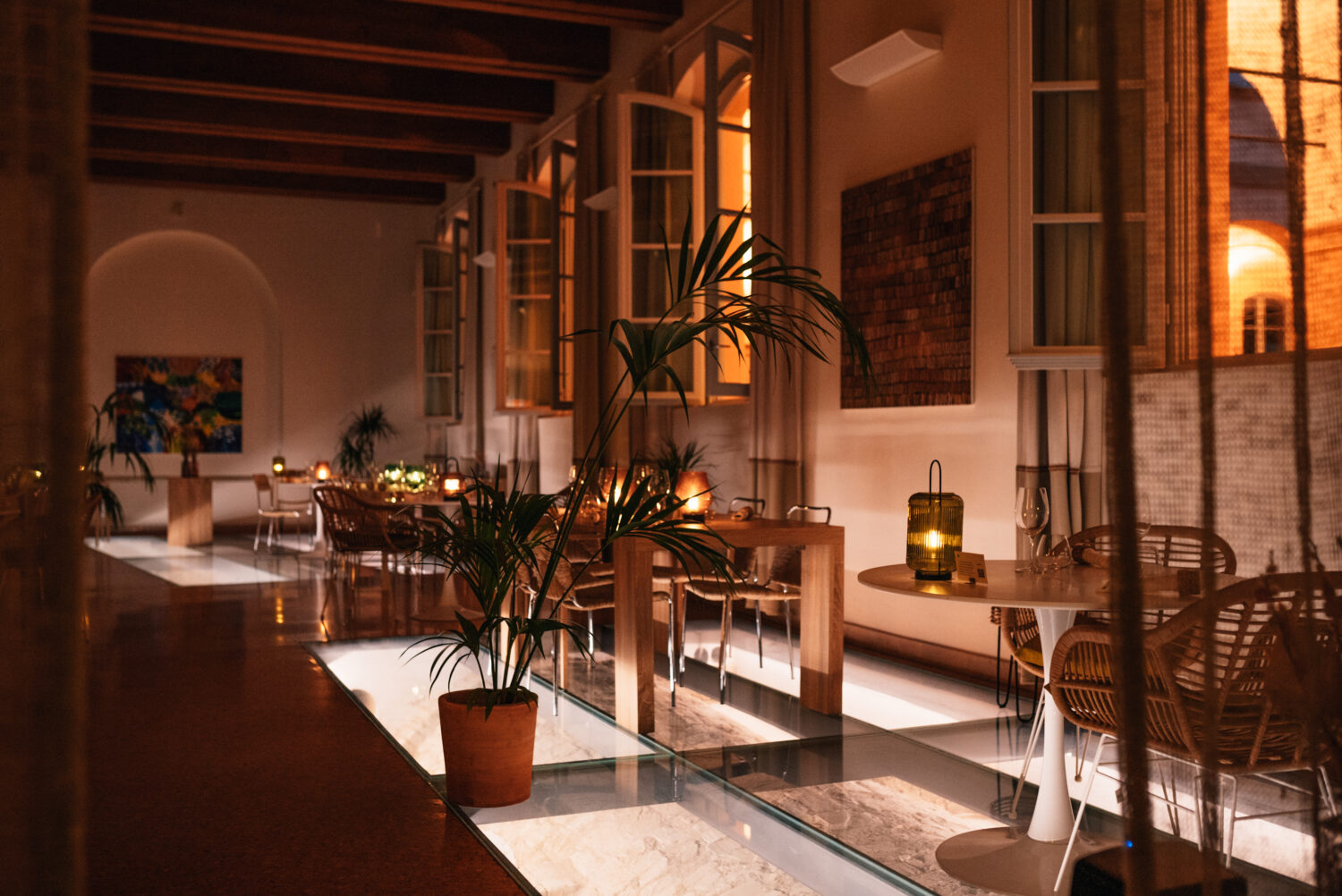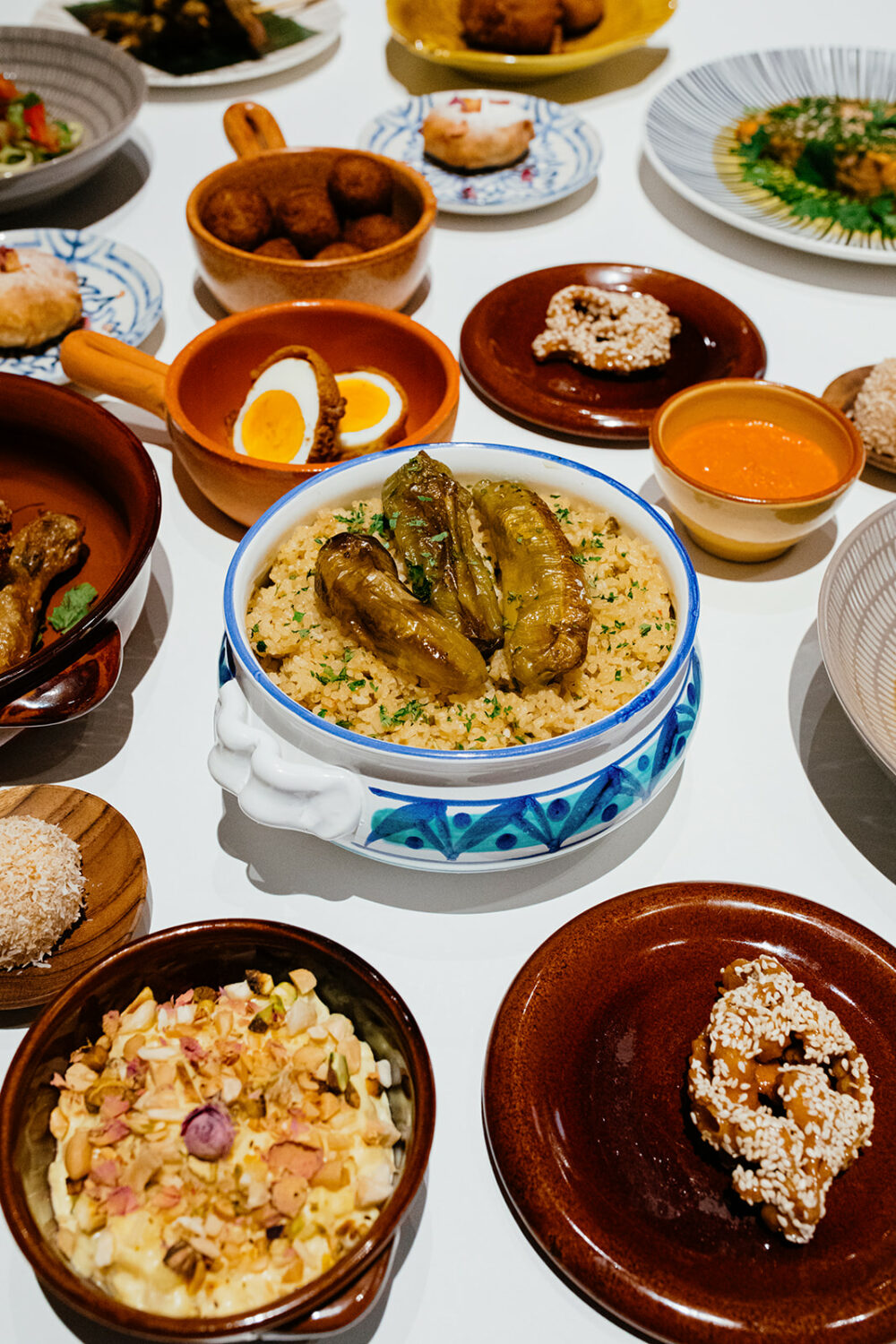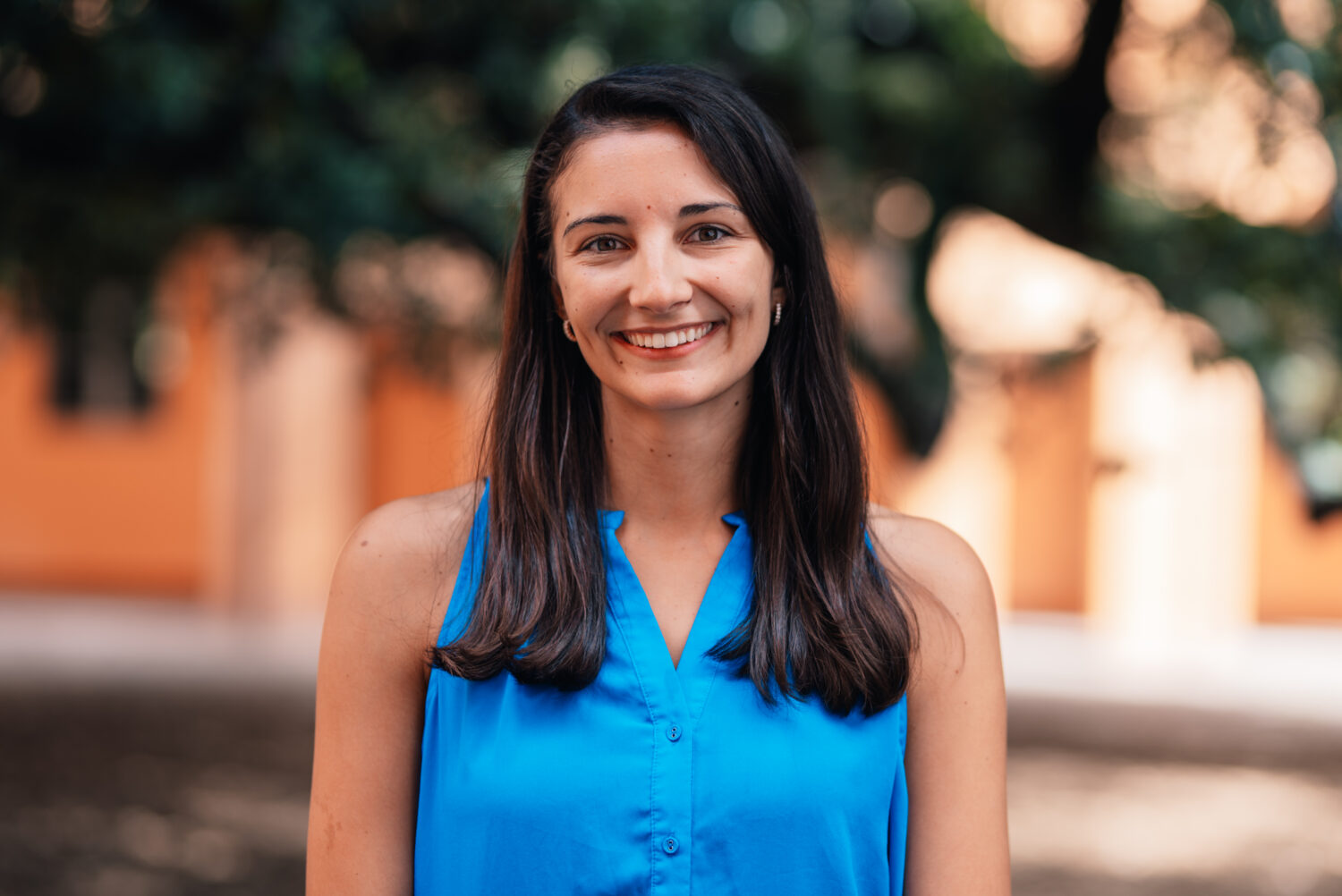Inside Modena’s Most Exciting Restaurant Right Now
By Luke PyensonDeep in Modena’s medieval core, there’s a bowl of jollof so powerful it’s a verb, and it’s conjugated in the Italian first-person plural – Jollofiamo. This is the invitation – “let’s eat jollof together” – on the current menu at Roots, a restaurant and social enterprise that trains migrant women in restaurant cooking. And a year and a half into its tenure, Roots couldn’t be a more vital part of the city’s already legendary food scene.
Well known to epicures as the home of Osteria Francescana, Massimo Bottura’s Michelin three-star temple to experimental Emilian cuisine, Modena also supports a wealth of bustling trattorias in which you’re just as likely to have a life-changing meal. The list of dishes and products typical of both Modena and the surrounding region of Emilia-Romagna reads like a “best-of” of Italian cuisine writ large: lasagne, tagliatelle al ragù, prosciutto di Parma, mortadella, parmigiano, and of course balsamic vinegar.

It’s true – given such abundance – that Italy’s reverence for its own regional cuisines can sometimes wander into the territory of closed-mindedness towards anything else. But alongside that reverence lives something just as powerful: respect for good ingredients, prepared well, no matter who’s in the kitchen. Or where they’re from. “We’ve worked with 18 women from 15 countries,” says Roots co-founder Caroline Caporossi, “and we want to make sure their stories are heard, too.”
For current trainee Beauty Ekhator, who came to Roots from Benin City, in Nigeria’s southern Edo State, jollof is a way to introduce Nigerian culture to a new audience. “We eat rice every day like how Italians eat pasta almost every day,” she says, “so jollof is very important to us. And we like to share it with people around the world.”
But this jollof – offered as a side dish with either Indonesian fried chicken or salmon in Moroccan chermoula – is particularly special. Unlike more common red-stained versions made with tomato, Ekhator’s jollof is green, prepared with onion and topped with charred green peppers. With so few ingredients, the depth of flavour is almost baffling: it is savoury, satisfying, and comforting, a truly perfect bowl of rice. Her secret? “When you’re cooking with heart, with love, it must taste good!”

Interested in cooking from a young age, Ekhator left Nigeria in search of more opportunities when she was 20, landing first in Naples in 2015 before relocating to Modena in 2022. A local association that assists migrants with documents and job opportunities showed her Roots’ Instagram account, and she was intrigued. “We just kept hearing people say, ‘there really aren’t programmes designed to help immigrant women,’” recalls Caporossi. What Roots was offering – on-the-job training, classroom instruction, paid kitchen shifts, support with paperwork, and above all, community, in a 100 percent women-led and staffed space – was novel. “I was jumping up and down, saying ‘Let them take me!’” says Ekhator, laughing.
Long-known by Italians as one of the country’s more politically progressive regions, Emilia-Romagna receives the second-most immigrants of anywhere in the country (after Lombardy). When Caporossi – a third generation Italian-American – landed in Modena after years spent working with immigrant women in the American South, she quickly found resonance in the issues facing migrant women locally. “Young immigrant women between the ages of 25-35 are the most disadvantaged group in the EU in terms of economic integration,” says Caporossi. In the US, some of the women Caporossi worked with were undocumented, others had survived gender-based violence. “I had it in my head [that the experience of migrant women in Italy] was really different than the US,” she says, “But I found out—this is exactly the same story as the women I was working with back home.”
While working at Massimo Bottura and Lara Gilmore’s food waste and hunger nonprofit Food For Soul, Caporossi met Jessica Rosval, a Canadian chef then working at Osteria Francescana. Energised by the way Food For Soul harnessed food and cooking to address social issues, Caporossi decided to revisit her old work from this new lens and teamed up with Rosval and lawyer Maria Assunta Ioele to form the Association for the Integration of Women (AIW), of which Roots is the cornerstone programme.

Roots held its first dinners in September 2020 with an inaugural group of four Nigerian trainees. City councillors were invited to eat jollof and okra soup, and local enthusiasm for the project grew. An award from the United Nations Major Group for Children and Youth opened the door to more funding, and Roots secured its permanent space – an airy dining room framed by arched windows and wood beams, and an adjacent reception space and kitchen – within a beautifully restored 12th-century church complex. These days, the dining room is buzzing, and Roots’s impact is undeniable. According to AIW’s 2022 annual report, 75 percent of grads are employed or self-employed within six months of finishing the program.
A dinner at Roots in the autumn of 2023, prepared by the current trainees – Aziza Taouaf, from Morocco; Ikawati Ikawati, from Indonesia; and Dina Bempong, from Ghana, in addition to Ekhator, from Nigeria – began with hummus and the Moroccan aubergine dish za’alouk; flaky b’stilla filled with local ricotta and parmesan; mushroom and lamb sate padang; and a Nigerian dish titled “Love, Mom,” – hard boiled egg encased in deep-fried dough, commonly given by mothers to their children before heading to school.
The first electric bite of mushroom sate was an indication of the level of cooking in the kitchen, which ingeniously married Italian ingredients with techniques from North and West Africa and Southeast Asia. And not only was each dish individually delicious, they all – in spite of this geographic range –complemented each other in unexpected ways. This is by design.

Rosval, who’s been cooking in Modena for over a decade and now runs the kitchen at Casa Maria Luigia (Bottura and Gilmore’s nearby boutique hotel), oversees menu development in collaboration with the trainees. “She really understands the local produce and palates,” says Caporossi. The process begins with an exercise known as the “’Who am I?’ dish,” in which trainees prepare a special dish from their home countries. “It’s a tool for us to open up the conversation about food culture and the messages we want to send,” she adds. The menu – a family-style three-course prix-fixe for €38 per person – comes together from there.
All trainees rotate around the kitchen’s stations and cook each other’s dishes in addition to their own. “I love bringing this group of different cultures together. It’s not only my traditional food; I can learn from other countries even if I haven’t been there,” Ekhator says. Caporossi sees this as an advantage. While most trainees will go on to jobs at Italian restaurants, “with this foundation,” she explained, “seeing food from this lens, it kind of changes everything.” It’s a way for trainees to re-frame how they look at Italy, and their place within it. Ekhator felt it the first time she arrived at Roots.
“You know when you’ve been travelling, and you come back home, and there’s a breeze that’s like, ‘Welcome Home!’? It was like, I was already home.”
Header image by Gloria Soverini, courtesy of Roots.